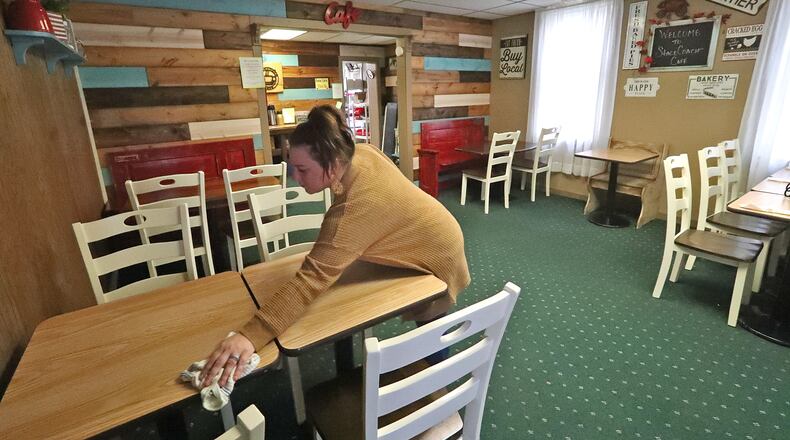Another will focus on small businesses with less than 50 employees as well as nonprofit organizations. The goal is to provide grants of up to $15,000 to those that have suffered financially due to the pandemic and statewide measures designed to curb the spread of the virus.
Both programs will be funded by federal relief dollars recently allocated to the county’s governmental entity. The money comes from the passing of the Coronavirus Aid, Relief and Economic Security (CARES) Act by congress back in March.
That legislation has allocated relief aid to states and a portion of those dollars have been distributed to counties, municipalities and townships in Ohio.
Clark County’s government has received a total of about $7.5 million in that funding as part of three allocations.
It received around $2.7 Million from the first two rounds of funding that started in June. A third round of funding started this month and has called for the allocation of an additional $4.8 million for Clark County’s governmental entity.
Money from the third round has been used to create the two assistance programs for residents and businesses and both programs have received an initial $200,000 each of funding.
Clark County Commissioner Melanie Flax Wilt said the programs were established due to the pandemic’s immediate economic impact in the area.
“It hit people hard. Though it did not effect everyone, some were seriously hurt financially by not having work or having reduced hours,” she said.
The unemployment rate skyrocketed in the county during April, going from 5.3% in March all the way up to 17.4%.
There was also a 2,746% jump in jobless claims between the week ending on March 14 and the week ending on March 21. During that time, the number of local unemployment filings went from 70 to 1,992.
A statewide stay-at-home order was also enacted in March that called for businesses that were not deemed essential to close their doors.
That impacted businesses such as gyms, hair salons and the like. Places that were allowed to stay open at the time had to alter their operations, including restaurants switching to primarily carryout and delivery as those establishments could no longer offer in-person dining.
Ohio began reopening portions of its economy in May and by July, businesses that were previously shuttered had reopen. Restaurants were also allowed to have in-person dining again, but at a limited capacity.
The financial impacts are still being felt by some residents and businesses. With a third allocation of CARES Act funding, Clark County officials decided to establish programs that would aid those impacted in the community.
The program geared towards residents is similar to the one that is already being implemented in the city of Springfield.
County commissioners wanted to establish a similar program that would focus on residents outside of Springfield city limits that may need help paying their bills.
The idea is to provide those impacted with up to $1,000 a month that can go towards payment of mortgage, rent, property tax, utilities, food and other expenses incurred since March.
However, residents must first be deemed eligible to receive that assistance. They have had to experience a loss of income, increased financial costs or an adverse circumstance due to the pandemic.
Businesses and nonprofits that wish to apply for the county’s grant program focused on them must be able to prove that they were financially impacted by the pandemic. That can include a loss in profits as well as having to temporarily close as a result of the pandemic.
Alex Dietz, the economic development coordinator for Clark County, said they want to help as many of those small businesses and nonprofits, that are registered as a 501(c)(3), as soon as possible.
He said that grants will be distributed on a first come, first serve basis and the county plans on issuing as many grants as the current funding will support.
Dietz added that businesses who previously applied for and received a federal Paycheck Protection Program loan are eligible to qualify. However, grants received by the county cannot be spent on the same items that were covered by the PPP loan.
For more information on both programs visit www.clarkcountyohio.gov/cares, or call 937-521-2164 for the emergency assistance program or call 937-521-2185 regarding the small business and non-profit grants.
By the Numbers:
$7.5 million: Amount of CARES Act funding allocated in total to the governmental entity of Clark County
2: New pandemic relief programs being established by Clark County with CARES Act funding
$200,000: The minimum amount of funding allocated to each of those programs
About the Author

